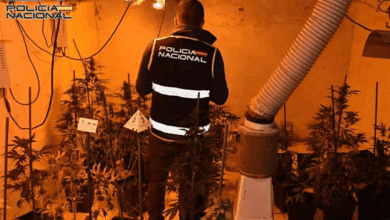
One of the largest operations in recent years against food fraud has concluded in Spain. Law enforcement arrested ten individuals, and products worth more than 95 million euros were removed from store shelves. Among the confiscated goods were thousands of tons of items, including alcohol, meat, fish, dairy products, and even fruits with counterfeit labels.
The investigation revealed that criminal groups infiltrated waste disposal companies to gain access to expired products. They would then change expiration dates, repackage the goods, and return them to the market with falsified documents. Particular attention was given to products with protected geographical indications—such as olive oil and wine—which were passed off as certified premium items.
The operation spanned several regions: Huelva, Mallorca, Alicante, Vigo, and Santa Cruz de Tenerife. In total, more than two thousand inspections took place at warehouses, stores, during transport, and in ports and airports. Authorities uncovered over a thousand administrative violations, and nearly one and a half million liters of beverages, mainly alcoholic, were seized from the market.
In some cases, the scale of violations is staggering. For example, in Tenerife, 25 tons of spoiled fish and seafood were found being sold wholesale without documentation and in unsanitary conditions. In Vigo, over a thousand tons of expired frozen products were seized. In Alicante, a scheme was uncovered where bananas from Madeira were passed off as Canarian, despite lacking permission for sale. In Mallorca, a meat processing plant was exposed for cleaning expired raw materials with bleach and changing their labeling. In Huelva, a group involved in distributing health-hazardous shellfish and money laundering was detained.
The operation, which involved police from 31 countries, led to the arrest of dozens of suspects and the dismantling of thirteen criminal organizations. Hundreds of individuals are implicated in the case, and the investigation is ongoing. Authorities emphasize that fighting such schemes is not only an economic issue but also a matter of public safety.












